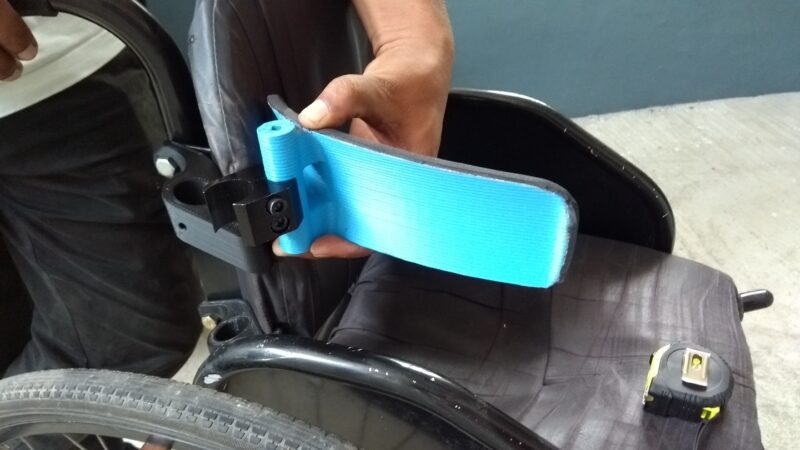Digital Technology, to Revolutionise Wheelchair Provision with Motivation

A 3D printed postural support for a manual wheelchair
According to the World Health Organization (WHO), of the estimated 70 million people who need wheelchairs globally, only 10% has access to them. In many low to middle-income countries, especially in rural areas where availability of central government services is limited and access to appropriate wheelchairs is particularly difficult, wheelchair provision is heavily dependent on the charitable work of the NGOs operating in the country or smaller satellite public clinics. Unfortunately, most of these local centres are poorly stocked and rely on periodic bulk deliveries of standard and configurable wheelchairs, which are designed to cater to the majority rather than the individual.
Over the last two years, Motivation has been testing how they can use additive manufacturing to better inform their design and manufacturing processes, and apply it to wheelchair provision. With funding from Google.org, Motivation has successfully demonstrated the scope to which they can tailor seating solutions for disabled people. Working with clinicians in remote locations, they have shown how digital measurements of patients can be taken, and high quality personalised postural support devices can be printed from an online catalogue of pre-designed Computer Aided Design (CAD) components. This new approach and system was successfully trialled with local service providers in India (read more about the project here) and has informed the next stage of Motivation’s exciting and potentially ground-breaking work to develop the next generation of wheelchair provision for low to middle-income countries.
Motivation is now pushing the boundaries of innovation even further. Engineers, designers and clinicians at the UK based international NGO are developing a new system that allows service providers to automatically design and locally manufacture wheelchairs of custom shapes and sizes, according to the individual needs of their clients, using 3D printed components to make use of materials and parts that have been locally procured. As part of the AT2030 programme, the Global Disability Innovation Hub will support Motivation in testing their new provision system in Kenya to evaluate the quality of the new designs and understand how distributed manufacturing through 3D printing could augment current wheelchair service, provision models. This novel approach could improve the availability of made-to-measure wheelchairs everywhere, but particularly in areas that traditionally suffer from the centralisation of services, and reliance upon international aid. Further, distributed manufacturing of wheelchairs and assistive devices could be beneficial not only to people with disabilities but to the local communities as a whole thanks to the creation of new networks and work opportunities.